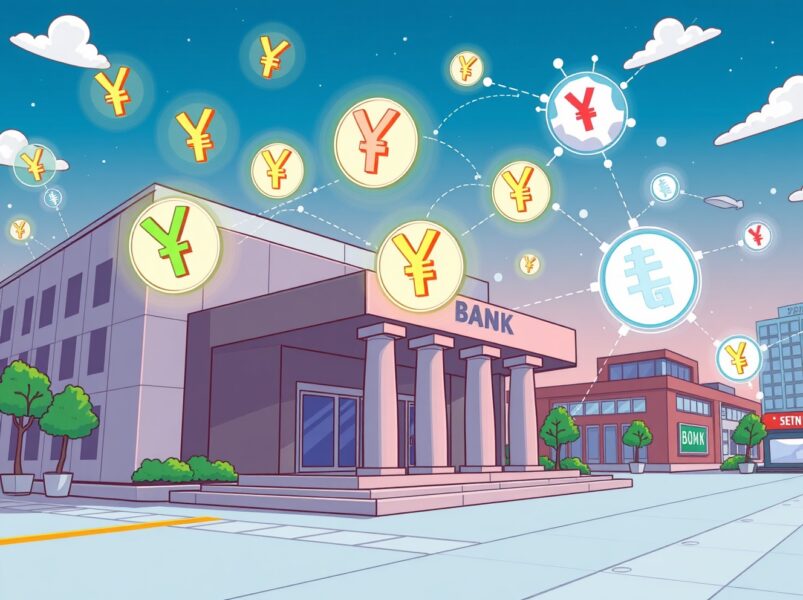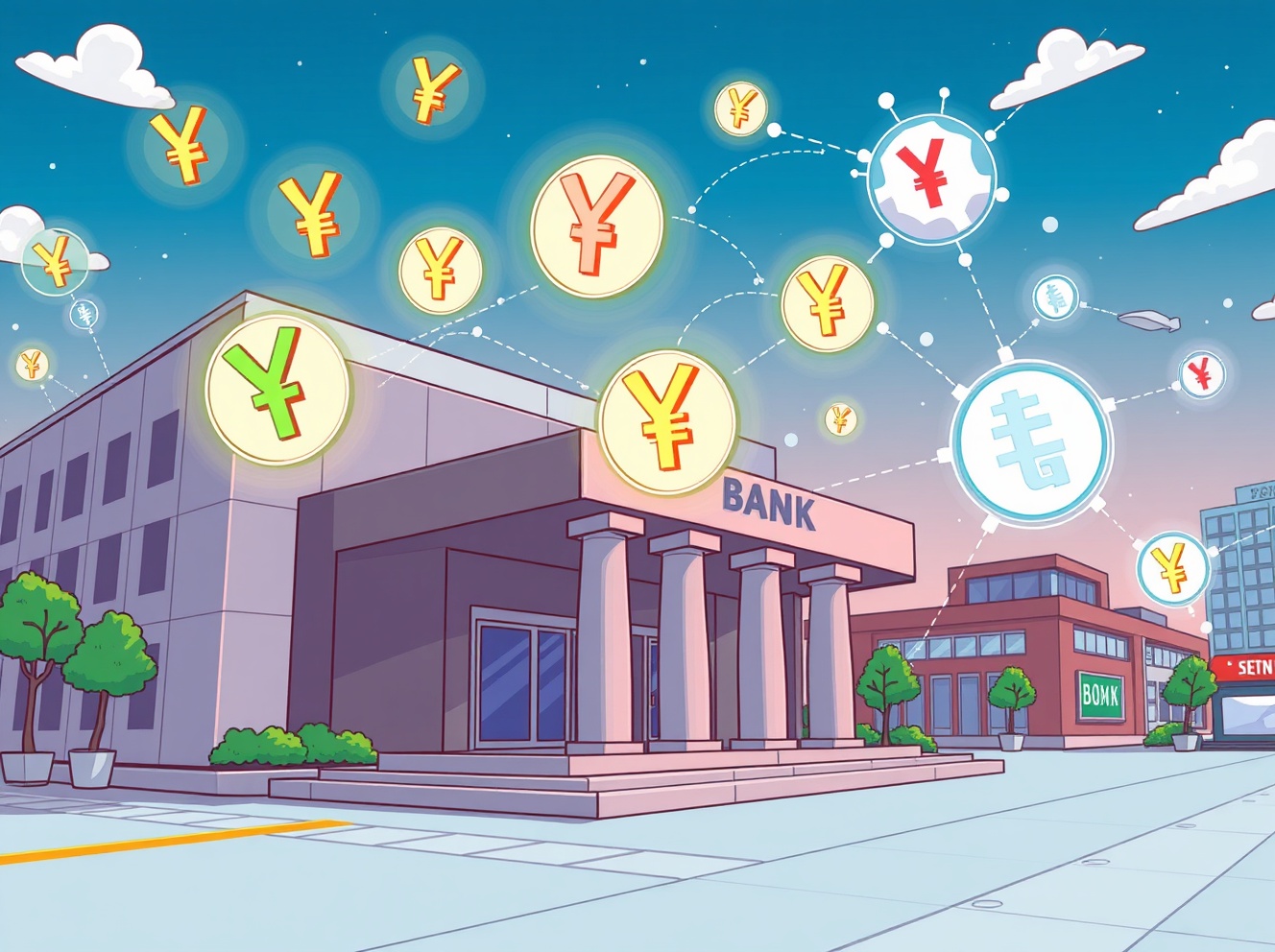DCJPY: Unlocking a New Era of Digital Payments in Japan
0
0

BitcoinWorld

DCJPY: Unlocking a New Era of Digital Payments in Japan
Are you ready for a financial revolution? Japan is taking a monumental leap into the future of digital finance. SBI Shinsei Bank is making headlines by becoming the first Japanese bank to join JPMorgan’s cutting-edge blockchain-based payment network, Partior. This pivotal move sets the stage for the highly anticipated issuance of the DCJPY, a deposit token-based digital yen, promising to redefine how corporate clients handle international transactions.
What is the Buzz Around DCJPY and Partior?
SBI Shinsei Bank’s decision to integrate with Partior marks a significant milestone. Partior, powered by JPMorgan, leverages blockchain technology to create a more efficient and secure global payment infrastructure. This collaboration isn’t just about adopting new tech; it’s about solving real-world financial challenges.
- Faster Transactions: Imagine international remittances that take minutes instead of days. This is the promise of the DCJPY and Partior working together.
- Reduced Costs: Traditional cross-border payments often come with hefty fees. The new system aims to drastically cut these expenses, benefiting corporate clients.
- Enhanced Security: Blockchain’s inherent security features provide a robust framework for managing digital assets and transactions.
This initiative positions SBI Shinsei Bank at the forefront of digital innovation in Japan’s banking sector, showcasing a clear vision for modernizing financial services.
How Will DCJPY Transform Digital Payments?
The core of this transformation lies with the DCJPY. Set for issuance in 2026, this digital yen is designed as a tokenized deposit, meaning its value is directly pegged at one token to one Japanese yen. This 1:1 peg ensures stability and trust, making it a reliable medium for digital transactions.
Under Japan’s revised Payment Services Act, only licensed banks are authorized to issue such tokens. This regulatory clarity provides a strong foundation for the DCJPY‘s adoption and ensures consumer protection. Furthermore, the ambition extends beyond just SBI Shinsei Bank; Japan Post Bank also plans to utilize the DCJPY for securities settlements, also beginning in 2026. This broader application highlights the versatile potential of this digital currency.
The benefits are clear and compelling:
- Efficiency: Say goodbye to long waiting times. Cross-border payments become near-instant.
- Cost-Effectiveness: Businesses can save substantially on transaction fees, directly impacting their bottom line.
- Interoperability: Joining a network like Partior opens doors for seamless integration with other financial institutions globally.
What Does This Mean for the Future of Finance?
The move by SBI Shinsei Bank and the impending launch of DCJPY signal a significant shift in the global financial landscape. Japan is demonstrating its commitment to embracing digital currencies and blockchain technology for practical, real-world applications. This could inspire other nations and financial institutions to accelerate their own digital currency initiatives.
However, like any major innovation, there are considerations. Ensuring regulatory harmonization across different jurisdictions will be crucial for the widespread adoption of such networks. Interoperability between various digital currencies and payment systems will also be key to unlocking their full potential. Despite these challenges, the trajectory is clear: digital, blockchain-powered payments are becoming an undeniable part of our financial future.
The commitment to reducing international remittance times to mere minutes while significantly lowering fees isn’t just a technical upgrade; it’s a strategic enhancement that can empower businesses and foster greater global economic connectivity. This is a game-changer for corporate finance.
FAQs About DCJPY and Digital Payments
What is DCJPY?
DCJPY is a deposit token-based digital yen, meaning its value is directly pegged 1:1 to the Japanese yen. It will be issued by banks under Japan’s Payment Services Act.
Which bank is the first in Japan to join JPMorgan’s Partior network?
SBI Shinsei Bank is the first Japanese bank to join JPMorgan’s blockchain-based payment network, Partior.
When is DCJPY expected to be issued?
SBI Shinsei Bank plans to issue the DCJPY for its corporate clients in 2026.
What are the main benefits of using DCJPY and Partior?
The primary benefits include significantly reducing international remittance times to minutes and substantially lowering transaction fees for corporate clients.
Are other Japanese banks using DCJPY?
Yes, in addition to SBI Shinsei Bank, Japan Post Bank also intends to use DCJPY for securities settlements starting in 2026.
This is an exciting development that could truly transform how money moves across borders. Don’t keep this groundbreaking news to yourself! Share this article on your social media channels to inform your network about Japan’s pioneering steps in digital finance.
To learn more about the latest crypto market trends, explore our article on key developments shaping digital currencies institutional adoption.
This post DCJPY: Unlocking a New Era of Digital Payments in Japan first appeared on BitcoinWorld.
0
0
 Manage all your crypto, NFT and DeFi from one place
Manage all your crypto, NFT and DeFi from one placeSecurely connect the portfolio you’re using to start.




